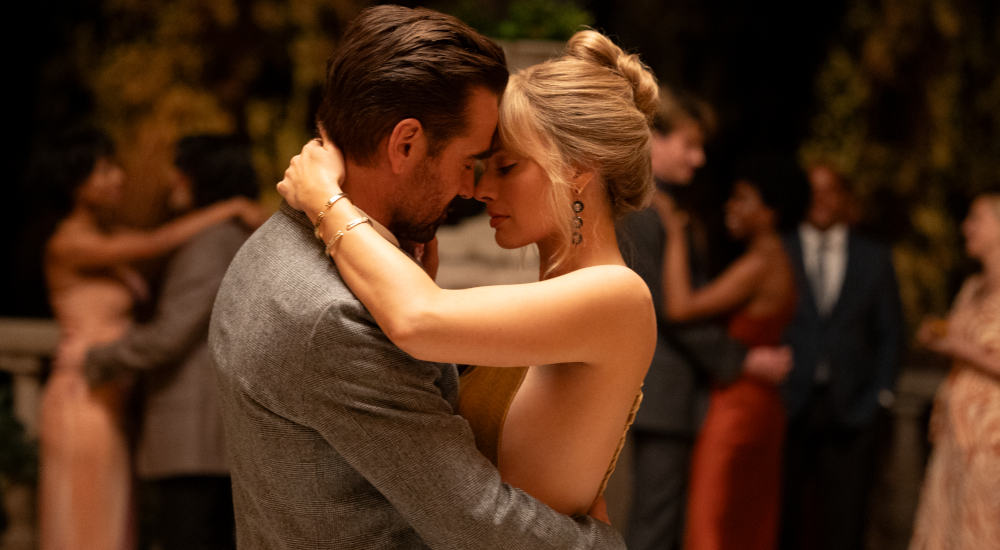“Life is better when you’re open.”
There’s a lot expected of audiences who venture into Kogonada’s A Big Bold Beautiful Journey. Whimsical from the start, the hopeful romantic attempts to utilize its fantasy realism to engage viewers, sweeping them up in a blissful charm. Colin Farrell and Margot Robbie are merely bonuses, starring as two lost souls who desperately need the titular journey to uncover the true meaning of life. It’s a ginormous swing. Had it landed, it would have been something magical.
Unfortunately, it doesn’t. Unable to escape itself, the film proves pretentious, its characters too heavily flawed. And even with the talents of a pair of Hollywood heavy hitters, it can’t stick the landing, proving that not all doors warrant opening.
The journey itself centers on David (Farrell), a kind, soft-spoken man who, while heading out for a friend’s wedding, discovers a boot on his car. Is the added hardware warranted? No idea. Does he have the money to pay for its removal? Not important. What is important is the sign hanging nearby advertising a rental company staffed by a bizarre duo, played to comedic perfection by Kevin Kline and Phoebe Waller-Bridge. The pair has little responsibility within the large framework of the story, outside of ensuring that David gets the GPS. He must, at all costs, add on the GPS.
Thankfully, he does.
While at the wedding, David meets Sarah (Robbie), who, through a series of oversharing, reveals that she is both educated and a flawed human. This intrigues David, who is equally atrocious. Though they don’t properly connect that night, their GPS leads them to a roadside Burger King where they embark on the elusive journey.
If it all sounds a bit much, trust me, it is.
Kogonada (After Yang), directing from a script by Seth Reiss (The Menu), tries too hard to establish emotional relevance. As both David and Sarah walk through random doors, traveling back to moments in their past, they slowly reveal a bit more of their damaged souls. And as viewers delve into their emotional states, peeling back the layers of their trauma, no amount of soft, eloquent dialogue can overpower the fact that these two, regardless of the circumstances, do not make a great pairing.
When David transports to his high school, the scene of his first heartbreak, we get a moment of vulnerability. It shows what the film could have become. The moment is sweet and honest as David fights for his childhood sweetheart, determined to do things the same way, in case they turn out favorably this time. The moment is kind and honest. But the blimp of heartache never reaches the outside corners of the story. We never fully understand its lasting effect on David. And as Sarah continues to remind everyone of her cheating past, it’s hard to make a case for there being a couple, which in turn makes our journey a bit senseless.
Aside from the story, Kogonada and Reiss craft a visually intriguing world that has just enough quirks to be engaging. From the constant rainfall to the bright colors, the aesthetic is on point as our eyes embrace each scene with a sense of curiosity. But sacrificing substance for looks is, while a possible metaphor to the world we live in, a harsh oversight by the creatives that distract and ultimately underwhelm.
When David finally pulls the car back into the nearly abandoned warehouse, the two car rental company is there to welcome him. Unfortunately for viewers, the film still has fifteen minutes left as David drags his feet to the finish line of an unsatisfyingly exhausting journey that is neither big, nor bold, nor beautiful. And in a film with Margot Robbie, that is a colossal misstep.

